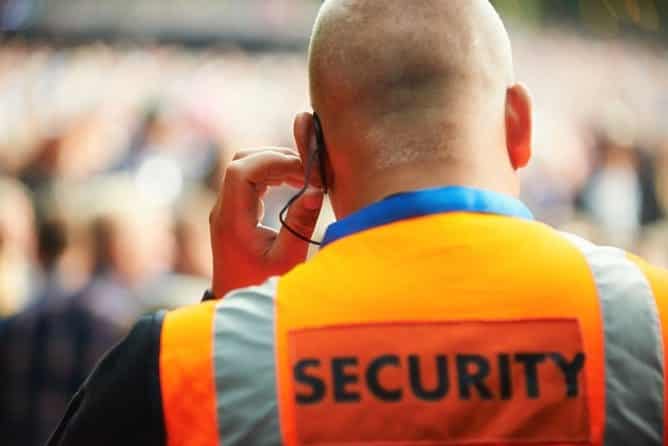Holding Parties Liable: Negligent Security Claims & Personal Injuries
Whether you've been injured in an accident, are dealing with a personal injury claim, or facing another legal issue, Mendez & Sanchez APC is here to fight for you. Contact us today for a free, no-obligation consultation.
Call Us Now
When we enter a property or attend an event, we expect a reasonable level of security to ensure our safety. However, there are unfortunate instances where negligent security measures lead to personal injuries. In such cases, it's essential to understand the concept of negligent security claims and the parties that can be held liable for these incidents. This article will delve into the intricacies of negligent security claims, common types of personal injuries resulting from them, and the legal process involved in seeking compensation for damages.
Understanding Negligent Security Claims
Definition of Negligent Security
Negligent security refers to a legal claim made against a party responsible for providing security on a property or during an event when their failure to meet the required standard of care leads to harm or injury to individuals. The claim asserts that the party responsible for security failed to take reasonable precautions to prevent foreseeable harm.
Examples of Negligent Security
Negligent security can manifest in various settings, such as:
- Inadequate lighting in parking lots, increasing the risk of assaults and robberies.
- Malfunctioning surveillance systems in apartment complexes, allowing unauthorized access.
- Insufficient security personnel during large events, leading to crowd control issues and potential injuries.
Importance of Security Measures
Effective security measures not only deter potential criminals but also provide peace of mind to visitors and occupants of a property. Negligent security compromises this sense of safety and can lead to severe consequences.

Parties Potentially Liable for Negligent Security
Property Owners
Property owners have a legal obligation to maintain a safe environment for visitors, tenants, and customers. They are responsible for implementing appropriate security measures to prevent foreseeable harm, such as installing surveillance systems, providing adequate lighting, and ensuring proper access control.
Security Companies
When property owners contract security companies, they place their trust in them to provide trained personnel capable of handling security-related tasks. If the security company fails to fulfill its duties, they may be held liable for any resulting personal injuries.
Event Organizers
Event organizers are responsible for the safety and security of attendees during their events. This includes ensuring appropriate security personnel, crowd control measures, and emergency response protocols are in place. If negligence on the part of event organizers leads to personal injuries, they may be held accountable.
Factors Considered in Negligent Security Claims
Duty of Care
To establish a negligent security claim, it is crucial to demonstrate that the party being sued owed a duty of care to the injured person. Duty of care refers to the legal obligation to act in a way that avoids foreseeable harm.
Breach of Duty
The injured party must prove that the defendant breached their duty of care by failing to provide adequate security measures or acting negligently.
Causation
It must be shown that the defendant's breach of duty directly caused or significantly contributed to the personal injury suffered by the victim.
Damages
Finally, the injured party must provide evidence of the damages they have suffered, including physical injuries, emotional trauma, medical expenses, loss of income, and pain and suffering.
Common Types of Personal Injuries Resulting from Negligent Security
Assaults and Robberies
Insufficient security measures can create an environment conducive to criminal activities, increasing the risk of assaults and robberies. Victims may sustain physical injuries and emotional trauma due to these incidents.
Sexual Assaults
Inadequate security in settings such as parking lots, hotels, or apartment complexes can make individuals vulnerable to sexual assaults. These traumatic experiences can have long-lasting effects on victims.
Physical Injuries
Negligent security incidents can lead to various physical injuries, including broken bones, head injuries, lacerations, or even gunshot wounds, depending on the circumstances of the incident.
Emotional Trauma
Personal injuries resulting from negligent security can cause significant emotional distress, leading to anxiety, depression, post-traumatic stress disorder (PTSD), or other psychological conditions.
Proving Negligent Security Claims
Gathering Evidence
To build a strong negligent security claim, gathering evidence is crucial. This may include incident reports, photographs of the scene, medical records, and any other documentation that supports the claim.
Witness Testimonies
Eyewitness accounts can provide valuable insights into the circumstances surrounding the incident and help establish the negligence of the responsible party.
Expert Testimonies
Expert witnesses, such as security professionals or forensic analysts, can provide their expertise to support the claim and explain how the defendant's actions or lack thereof deviated from the expected standard of care.
Surveillance Footage
If available, surveillance footage can serve as powerful evidence, capturing the incident and revealing any deficiencies in security measures.
Steps to Take If You've Experienced a Personal Injury due to Negligent Security
Seek Medical Attention
The first priority after experiencing a personal injury is to seek medical attention. Prompt medical care not only ensures your well-being but also creates a record of your injuries, which can be crucial for your claim.
Document the Incident
Document the incident by taking photographs of the scene, your injuries, and any visible signs of inadequate security. If there were witnesses, collect their contact information for future reference.
Report to Authorities
Report the incident to the appropriate authorities, such as the police or property management. Filing a police report creates an official record of the incident.
Consult an Attorney
Consulting an experienced personal injury attorney is crucial to navigate the legal process. An attorney can assess the merits of your case, guide you through the claim process, and fight for your rights to seek compensation.
Preventing Negligent Security Incidents
Adequate Lighting
Well-lit areas deter potential criminals and enhance overall safety. Property owners should ensure proper lighting in parking lots, entrances, hallways, and other common areas.
Surveillance Systems
Installing and maintaining surveillance systems, including cameras and monitoring equipment, can deter criminal activity and provide evidence in the event of an incident.
Security Personnel
Trained security personnel play a crucial role in preventing and responding to security threats. Having visible security personnel can act as a deterrent and provide a sense of security to visitors.
Access Control
Implementing access control measures, such as key cards, access codes, or security gates, helps regulate entry and prevents unauthorized individuals from gaining access to restricted areas.
Training and Education
Property owners, security companies, and event organizers should prioritize regular training and education programs for their staff. This ensures they are equipped with the necessary skills to handle security-related situations effectively.
Case Examples of Negligent Security Claims
Nightclub Incident
Inadequate security at a nightclub led to a violent altercation resulting in serious injuries to several patrons. The negligent security claim focused on the nightclub's failure to employ sufficient security personnel and implement proper crowd control measures.
Hotel Assault
A hotel guest was sexually assaulted in a poorly lit parking lot due to the lack of surveillance cameras and security personnel. The hotel was held liable for negligent security as they failed to provide a safe environment for their guests.
Parking Lot Attack
A parking lot without proper lighting and security measures became the scene of a violent robbery, causing significant physical injuries and emotional trauma to the victim. The property owner was found responsible for the incident due to their failure to address known security risks.

The Legal Process and Compensation
Filing a Lawsuit
If negotiations with the responsible parties or insurance companies fail to yield a fair settlement, filing a lawsuit becomes necessary. Your attorney will guide you through the legal process, ensuring your rights are protected.
Settlements and Trials
In some cases, a negotiated settlement may be reached outside of court. If a fair settlement cannot be reached, the case may proceed to trial, where a judge or jury will determine the outcome.
Damages and Compensation
If successful, you may be entitled to various types of compensation, including medical expenses, lost wages, pain and suffering, emotional distress, and other damages directly resulting from the incident.
Conclusion
Negligent security claims are essential in holding parties accountable for their failure to provide a safe environment, resulting in personal injuries. Understanding the concept of negligent security, the potential parties liable, and the steps to take when faced with such incidents empowers individuals to seek justice and compensation. By implementing effective security measures and fostering a culture of safety, we can prevent negligent security incidents and promote a safer society for all.


